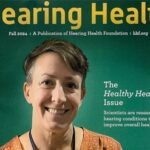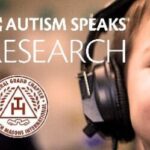May 14, 2021
Autism Speaks, with the support of a Royal Arch Research Assistance grant, is funding two pilot studies and one Fellowship to understand central auditory processing disorder and sound-processing difficulties.
Royal Arch Masons International ranks among the leading charities helping children with central auditory processing disorder. The disorder can lead to difficulty using, understanding and remembering information conveyed through speech and other sounds.
“The Royal Arch Masons have generously supported advancements in our understanding of a major communication and learning challenge that affects many people with autism,” said Autism Speaks Vice President of Clinical Programs Donna Murray, Ph.D. “This longstanding partnership helps to support the community by working toward solutions to auditory processing challenges that will improve lives.”
Each one-year pilot study will be funded at $60,000, and the fellowship awards $40,000 per year for two years.
Two pilot research projects
Bonnie Lau, Ph.D.
Bonnie Lau, Ph.D., at the University of Washington will test whether differences in how people integrate sounds from both ears underlies central auditory processing challenges in children with autism. In particular, her work will look at how these processes affect understanding of speech heard in a noisy environment. This research will advance understanding of speech perception in noise as well as the how the brain processes sounds, providing future directions for targeted assessment of auditory processing challenges and new treatments.
Our goal: To help identify how speech processing in both ears relates to understanding speech in noisy environments to target new treatments for auditory processing disorder in children autism.
Karen Chenausky, Ph.D.
Karen Chenausky, Ph.D., at the Massachusetts General Hospital Institute of Health Professions will look at how auditory processing affects the ability to use language for children with autism who have minimal or no spoken language. In addition to other work that suggests auditory processing difficulties are a barrier for autistic children in understanding language, Dr. Chenausky’s study will examine whether those same challenges are linked to barriers in using spoken language. With this knowledge, new speech language therapies may be created to address these challenges and support use of spoken language in minimally verbal children with autism and auditory processing difficulties.
Our goal: To understand whether auditory processing challenges are a barrier to use of spoken language in children with autism with minimal spoken language to guide new treatments for those with auditory processing difficulties and autism.
Royal Arch Research Assistance Pre-Doctoral Fellowship
Predoctoral fellow Patrick Dwyer
Predoctoral fellow Patrick Dwyer at the University of California – Davis, under the mentorship of Susan Rivera and Cliff Saron, will investigate the theory of monotropism, which suggests that hyperfocus on a particular interest is what draws an autistic person’s attention to certain subjects and not attend to others. In Dwyer’s work, he will look at sensory stimuli in autism, including auditory processing, and its role in attention and sensory responses. The results of this study could have important implications for the treatment or accommodation of sensory processing differences for people with autism.
A longstanding partnership to improve lives
In 2011, Autism Speaks and the Royal Arch Masons forged a strong relationship that has included more than $1 million in pledged funding. In 2016, Autism Speaks announced the first Royal Arch Masons Fellowship. In addition to supporting research, Royal Arch Mason funding helps Autism Speaks teach health care providers and caregivers about auditory processing disorder in autism and the importance of evaluation when children show related challenges.
“The General Grand Chapter Royal Arch Masons and our members are proud to partner with Autism Speaks in funding Royal Arch Research Assistance studies to support a better understanding of central auditory processing disorders for the benefit of all mankind.”



